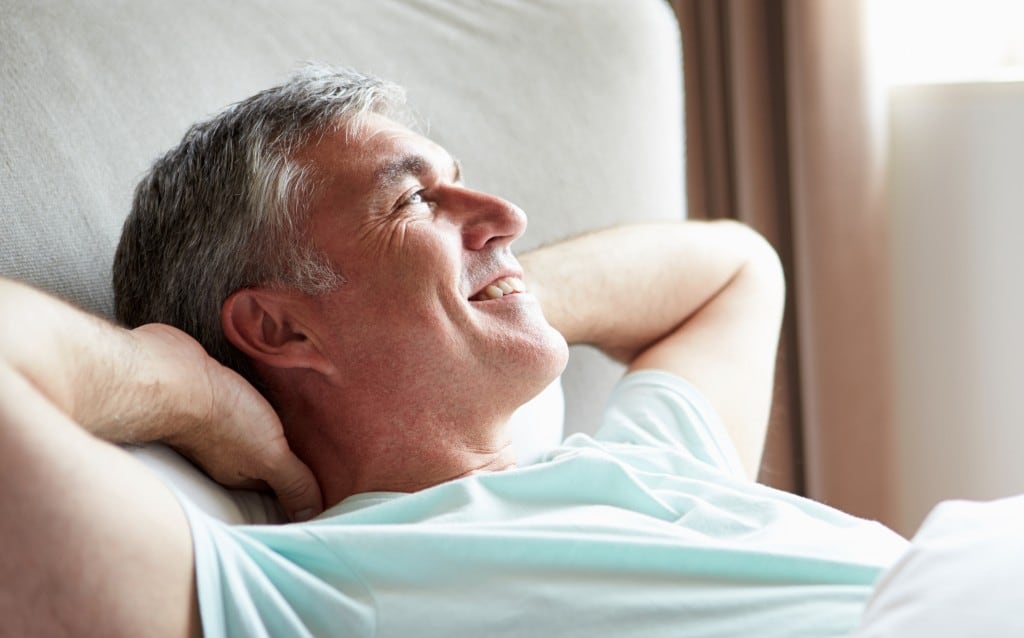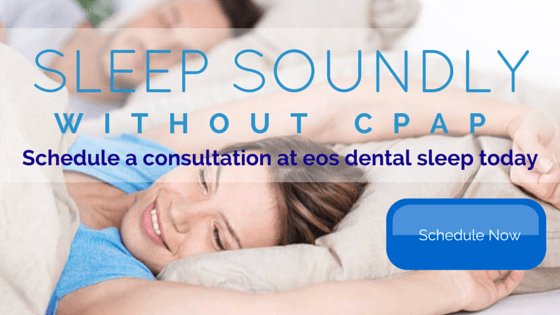5 Things to Consider When Looking to Stop Sleep Apnea Without CPAP
 Continuous positive airway pressure, or CPAP, has long been the first choice and most widely used option among doctors who treat sleep apnea. While the CPAP mask is non-invasive and effective for most people when used on a nightly basis, the reality is that more than half of the patients prescribed CPAP can’t – or simply won’t – use it.
Continuous positive airway pressure, or CPAP, has long been the first choice and most widely used option among doctors who treat sleep apnea. While the CPAP mask is non-invasive and effective for most people when used on a nightly basis, the reality is that more than half of the patients prescribed CPAP can’t – or simply won’t – use it.
In this blog, the Philadelphia sleep apnea specialist at eos dental sleep will address five things to consider when evaluating alternative treatment options to stop sleep apnea without CPAP. In addition, he will explain one alternative called oral appliance therapy.
The Challenge of CPAP Compliance
Before addressing what to consider when looking for a treatment alternative, it’s important to underline why CPAP compliance is a challenge for a majority of patients. Keeping these compliance inhibitors in mind will help you identify what you’re looking for (and also what you may be looking to avoid) in a sleep apnea treatment alternative.
Patients cite a wide range of complaints about CPAP, including:
- It causes feelings of claustrophobia
- It makes it difficult to get comfortable enough to fall asleep
- It produces noisy operating sounds
- It causes negative side effects including dry mouth, stuffy nose and facial irritation
- It is bulky and difficult to travel with
Despite these numerous complaints, it’s imperative to understand that patients who choose to not wear their CPAP mask on a nightly basis are exposed to all of the dangerous health risks associated with obstructive sleep apnea. Simply forgoing sleep apnea treatment because you can’t tolerate CPAP is not advisable for your health, which is why looking for a treatment alternative is the next step.
What to Ask Yourself When Considering Another Option to Treat Sleep Apnea Without CPAP
If you are an unhappy CPAP user evaluating your alternatives, here are five things to ask yourself before a treatment switch:
How often am I using my CPAP and am I compliant?
CPAP is only effective if you’re using it. An important part of considering new treatment options starts with honestly evaluating how much you’re using your CPAP mask. If you are struggling to stay compliant and using the device at the bare minimum or if you already know you’re non-compliant, then it is time to explore your other treatment options.
Is my obstructive sleep apnea mild, moderate or severe?
OSA can range from mild to severe. Depending on the severity of your condition, this will impact which CPAP alternatives should be considered. For example, oral appliance therapy for sleep apnea is typically a good option for patients dealing with mild to moderate cases of OSA.
Are my sleep apnea symptoms impacting my quality of life?
Sleep apnea symptoms vary from person to person, but OSA can produce some significant symptoms including excessive daytime sleepiness, chronic headaches, trouble concentrating, mood swings and even depression. The temporary disruption in oxygen supply occurring over and over again each night can also increase your risk of heart attack and stroke. If symptoms are taking a toll on your quality of life, it is especially critical that you find an alternative treatment to stop sleep apnea without CPAP as soon as possible.
Do I know exactly what’s causing my airway obstruction?
The effectiveness of OSA treatment is contingent upon whether that treatment is addressing the underlying cause of your airway obstruction. Airway blockage can be created by a number of factors – from your mouth and tongue anatomy, to the size of your uvula, to blockages in your nose, among other things. In order to be effective, treatment must target the source of your breathing problem. Patients with obstruction primarily caused by the tongue or a narrow airway may be good candidates for oral appliance therapy.
Would another non-invasive sleep apnea treatment work for me?
Sleep apnea treatments range from non-invasive devices to minimally invasive procedures and even surgery, in severe cases. Conservative, non-invasive treatments are typically the first options explored. If CPAP isn’t working, there are still additional, nonsurgical treatments that can help. These alternatives should be considered before more extreme measures such as surgery.
A Treatment Alternative to Consider: Oral Appliance Therapy
Oral appliance therapy is one leading option available that can help patients treat sleep apnea without CPAP. It works by repositioning the tongue and lower jaw to increase the dimensions of the airway and prevent the tongue from falling back and obstructing breathing during sleep. Like CPAP, it’s a nonsurgical treatment that utilizes a device, which needs to be used each night. However, compliance rates are much higher with this treatment option, due to its numerous advantages over CPAP.
Stop Masking the Problem: Find Out About Our CPAP Alternative in Philadelphia
Oral appliance therapy is not for everyone. Patients with severe OSA or airway obstruction primarily caused by something other than the tongue or a narrow airway may not be good candidates for this treatment. Meeting with a dental sleep specialist is the first step to finding out whether this option might work for you.
If CPAP isn’t working for you, you’re not alone. But the health risks remain each night that you sleep without your CPAP mask. Make your sleep quality and health a priority – schedule an appointment at eos dental sleep to learn more about how to stop sleep apnea without CPAP. You can also get started by filling out the appointment form right on this page.

